Step into a world where clean countertops sparkle, fresh laundry fills the air with a soothing scent, and every item has its designated place. A world where clutter is banished, and serenity reigns supreme. Welcome to the psychology of cleanliness – where an organized home becomes more than just a physical space; it becomes a […]

Step into a world where clean countertops sparkle, fresh laundry fills the air with a soothing scent, and every item has its designated place. A world where clutter is banished, and serenity reigns supreme. Welcome to the psychology of cleanliness – where an organized home becomes more than just a physical space; it becomes a powerful tool for improving our well-being.
In this fast-paced modern era, we often underestimate the profound impact our living environment can have on our mental state. However, studies have shown time and time again that there is a deep connection between cleanliness and our overall happiness. So grab your favorite cleaning supplies and embark on an enlightening journey through the transformative power of tidiness!
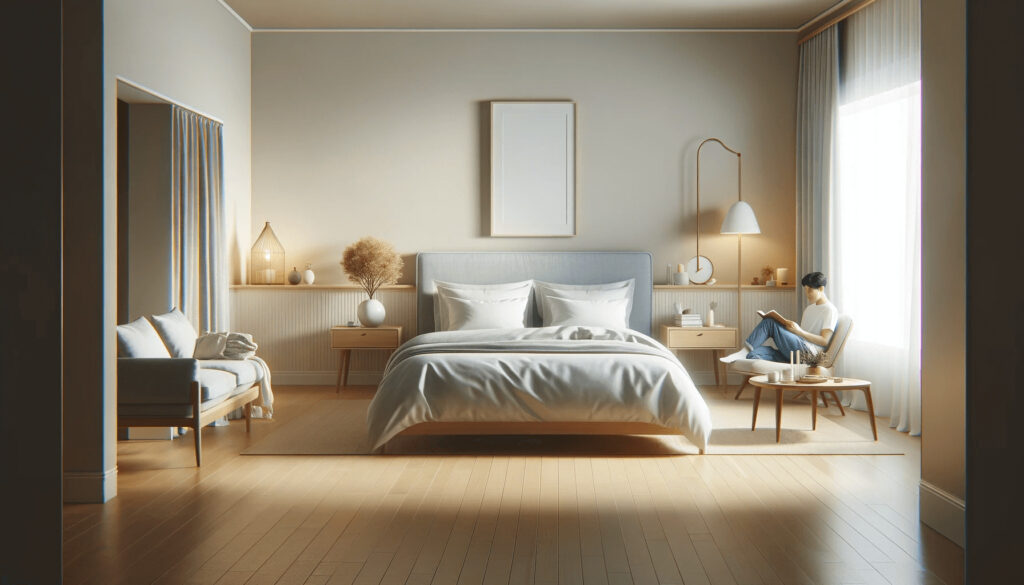
The state of our physical environment has a profound impact on our mental well-being. It’s no surprise that living in a cluttered and disorganized home can contribute to feelings of stress, anxiety, and overwhelm. The psychology behind a clean home is fascinating, as it reveals just how much our surroundings can influence our mental state.
Clutter not only takes up physical space but also occupies valuable mental real estate. When we are surrounded by piles of stuff and disarray, it becomes difficult to focus and find peace of mind. Our brains are wired to seek order and simplicity, so when we’re constantly confronted with chaos, it can be mentally draining.
Studies have shown that decluttering and organizing your living space can have numerous benefits for your mental health. A tidy home promotes a sense of calmness and relaxation, allowing you to feel more at ease in your own space. In contrast, cluttered environments tend to increase stress levels and negatively affect mood.
There is a psychological connection between cleanliness and self-esteem as well. We often feel more accomplished and proud of our homes when we are neat and organized. This boost in self-esteem can further enhance our overall well-being.
Living in a clean environment also allows us to cultivate healthier habits. Research suggests that people who maintain an orderly living space tend to make better food choices, exercise more regularly, sleep better at night, and experience less procrastination.
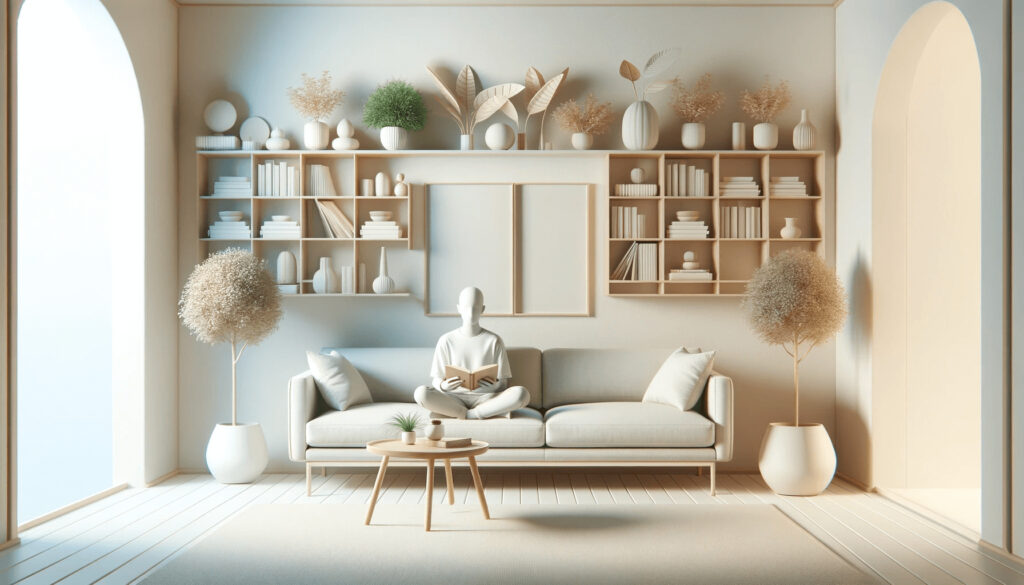
A clean and organized home can have numerous benefits for our overall well-being. First and foremost, it creates a sense of calm and tranquility in our living space. When we come home to a tidy environment, it instantly lifts our mood and helps us relax after a long day.
Additionally, maintaining cleanliness and organization in our homes allows us to save time and be more productive. We no longer waste precious minutes searching for misplaced items or cleaning up unnecessary clutter. Instead, we can focus on the things that truly matter to us – whether it’s spending quality time with loved ones or pursuing hobbies that bring us joy.
A clean home also promotes physical health by reducing the risk of allergies, respiratory problems, and other illnesses caused by dust mites, mold, or pests. Regular cleaning routines help eliminate these potential health hazards, creating a safer environment for ourselves and our families.
Moreover, an organized home fosters better mental clarity. Cluttered spaces can overwhelm our minds with visual distractions and make it difficult to concentrate or find peace within ourselves. On the other hand, an orderly living area promotes mental clarity and allows us to think more clearly.
A clean and organized home has many advantages – from enhancing relaxation to boosting productivity; from promoting physical health to fostering mental clarity – all contributing towards improved well-being overall!

The state of our physical environment can have a profound impact on our mental well-being. Numerous studies have shown that there is a strong connection between cleanliness and mental health. When our living spaces are cluttered and disorganized, it can create feelings of stress, overwhelm, and even anxiety.
A messy home can be visually overwhelming and mentally draining. It becomes difficult to focus or relax when surrounded by piles of stuff or endless amounts of clutter. On the other hand, a clean and organized home has been found to promote calmness, clarity, and a sense of control.
When we take the time to declutter our surroundings and maintain cleanliness in our homes, we essentially create an environment that supports positive mental health. A tidy space allows us to think more clearly, reduces distractions, and provides a greater sense of peace.
Furthermore, cleaning itself can also be therapeutic for many individuals. Engaging in physical activity such as sweeping or scrubbing helps release endorphins – chemicals in the brain that boost mood and reduce stress levels. Cleaning can provide a sense of accomplishment as well as serve as an outlet for pent-up emotions.
It’s important to note that maintaining cleanliness doesn’t mean striving for perfectionism. The goal is not to have spotless surfaces at all times but rather to create an environment that feels comfortable and functional for you. This means finding your balance between tidiness and relaxation.
In conclusion (sorry about this!), prioritizing cleanliness in your living space can greatly contribute to your overall mental well-being. By keeping your home clean and organized – whether through regular cleaning routines or adopting minimalist principles – you’re creating an atmosphere conducive to happiness, productivity, and peace of mind! So why not start small today? Take some time each day to tidy up one area at a time; you’ll likely notice the positive effects on your mood almost immediately!
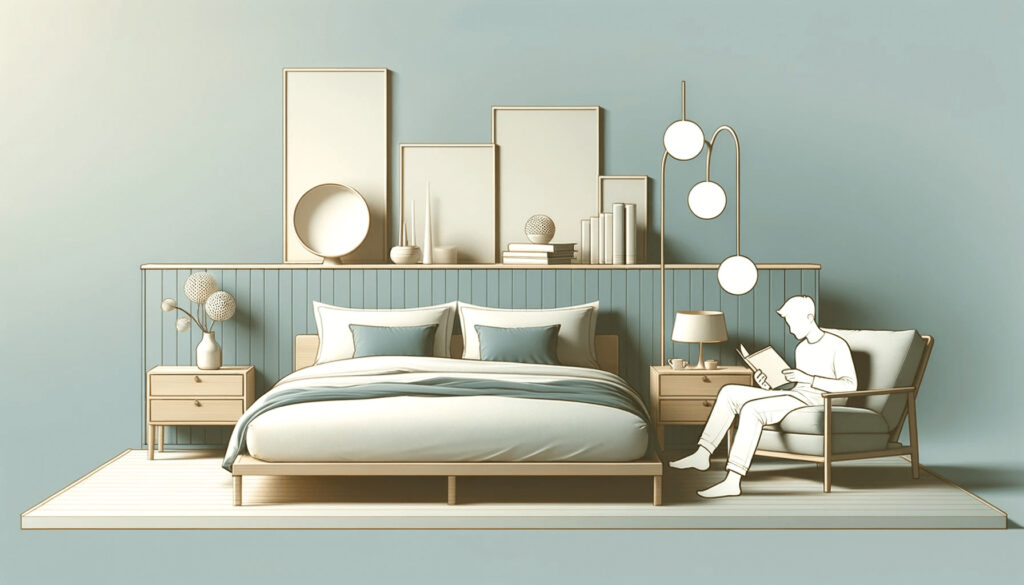
Maintaining a clean and clutter-free home can seem like an overwhelming task, but with the right strategies in place, it’s completely achievable. Here are some tips to help you keep your living space tidy and organized.
Develop a daily cleaning routine. Dedicate a few minutes each day to tidying up different areas of your home. This could include wiping down surfaces, putting away items that are out of place, and doing a quick sweep or vacuum. By tackling small tasks regularly, you’ll prevent clutter from piling up.
Create designated spaces for everything in your home. Have specific bins or baskets for toys, books, and other items so they have their place to go when not in use. This will make it easier to put things away and reduce visual clutter.
The next tip is to declutter regularly. Take time every few months to go through your belongings and get rid of anything you no longer need or use. Donate or sell these items instead of letting them take up precious space in your home.
Another important tip is to involve the whole family in maintaining cleanliness. Assign age-appropriate chores to children so they learn responsibility while helping keep the house clean.
Be mindful of what you bring into your home. Before making any purchases, consider if the item serves a purpose or brings joy into your life. By being selective about what enters your space, you’ll avoid unnecessary clutter.
With these tips in mind and consistent effort put into maintaining cleanliness regularly, you can enjoy the benefits of living in a clean and clutter-free environment!
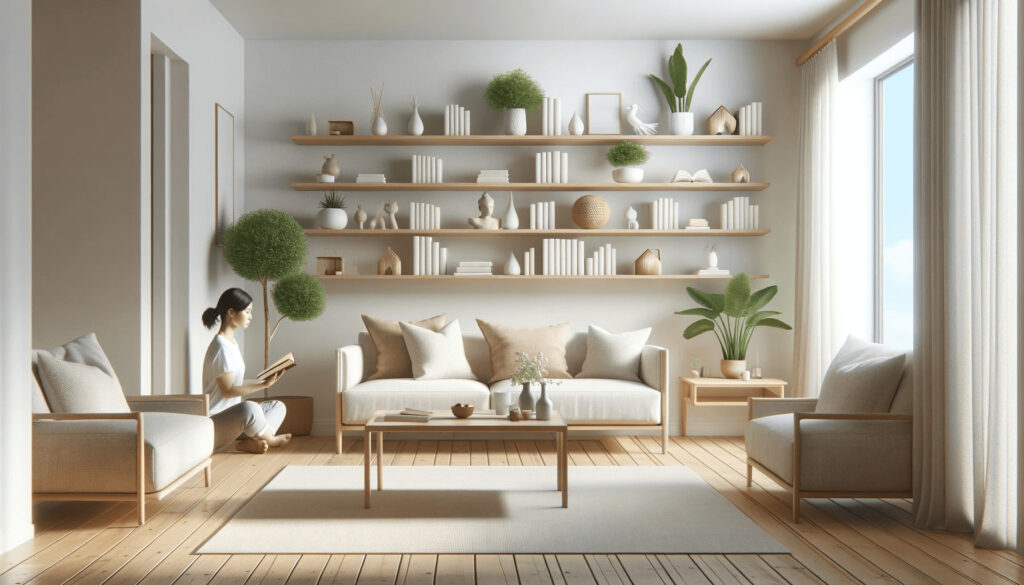
The role of minimalism in promoting well-being is becoming increasingly recognized and valued. In a world filled with constant distractions and overwhelming choices, adopting a minimalist lifestyle can provide a sense of calm and clarity.
Minimalism encourages us to focus on what truly matters, stripping away the excess and unnecessary. By decluttering our physical surroundings, we create space for mental clarity. A tidy home free from excessive possessions allows us to breathe more easily and think more clearly.
Moreover, minimalism promotes intentional living. It prompts us to consider the value and purpose behind each item we bring into our lives. This mindful approach helps us make better decisions about what we truly need rather than succumbing to impulsive buying habits.
By letting go of material attachments, minimalism also cultivates gratitude. We learn to appreciate the things that truly add value to our lives rather than constantly striving for more. This shift in mindset fosters contentment and reduces feelings of dissatisfaction or envy.
Additionally, minimalism can alleviate stress by simplifying daily routines. When our homes are organized and clutter-free, it becomes easier to find what we need when we need it. This saves time searching for misplaced items or dealing with overwhelming messes.
Embracing minimalism doesn’t mean getting rid of everything you own; it’s about being intentional with your belongings and creating an environment that supports your well-being. Start small by decluttering one area at a time – perhaps begin with your wardrobe or kitchen cabinets – then gradually expand from there.
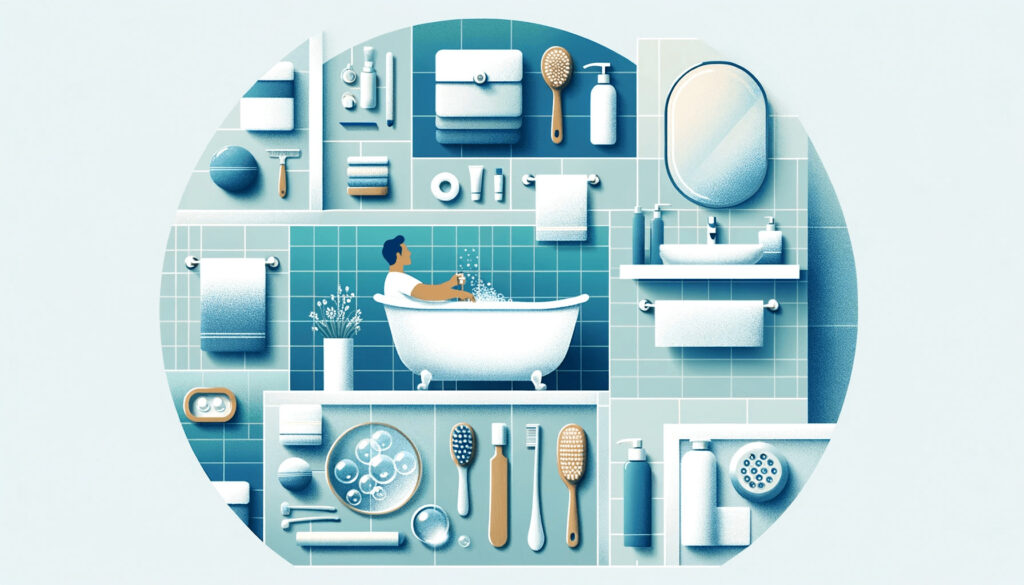
Dealing with cleaning-related stress and perfectionism can be a challenge for many people. It’s easy to get caught up in the idea that your home has to be spotless at all times, leading to feelings of anxiety and overwhelm. But it’s important to remember that perfection is not attainable, nor is it necessary for a clean and organized living space.
One way to combat cleaning-related stress is by setting realistic expectations for yourself. Understand that it’s okay if your house isn’t always pristine. Life happens, and sometimes there simply isn’t enough time or energy to deep clean every corner of your home.
Another helpful strategy is breaking down cleaning tasks into smaller, manageable chunks. Instead of trying to tackle everything in one day, create a schedule or checklist that allows you to spread out the work over several days or weeks. This can help alleviate the pressure and make the process more enjoyable.
It’s also important to let go of the need for perfection. Remember that imperfections are what make our homes unique and lived-in spaces. Embrace a mindset of progress over perfection – focus on making small improvements each day rather than striving for an unattainable ideal.
Additionally, seek support from friends or family members who understand your struggles with cleaning-related stress and perfectionism. Sometimes just talking about these challenges can provide some relief and perspective.
Don’t forget self-care amidst all the cleaning endeavors! Take breaks when needed, engage in activities you enjoy outside of cleaning, and practice mindfulness techniques such as deep breathing or meditation to help manage any stress or anxiety that may arise during the process.
By adopting these strategies, you can find a balance between maintaining a clean home while also prioritizing your mental well-being. Remember: progress over perfection!
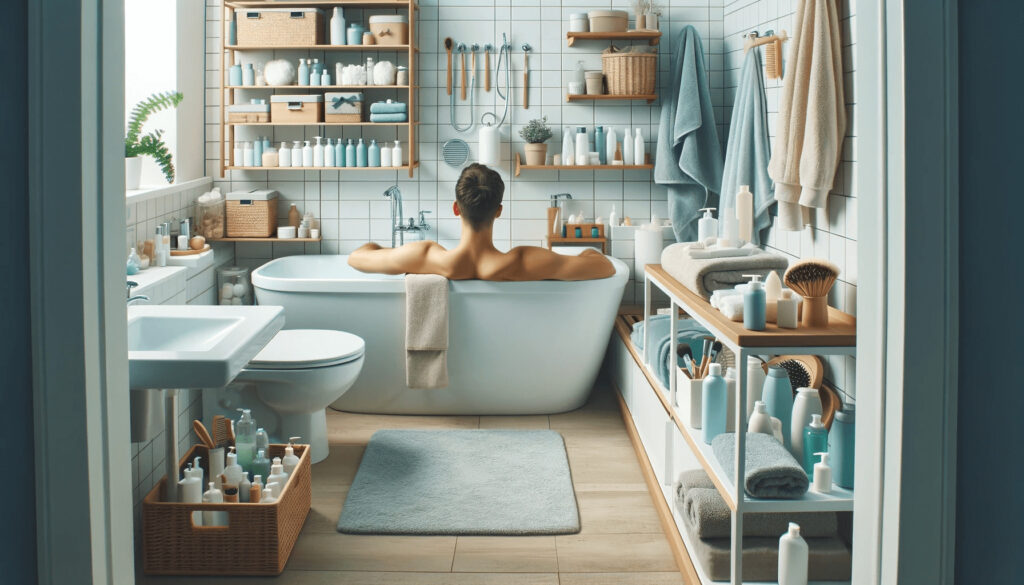
Embracing a cleaner lifestyle can have profound effects on our overall well-being. The psychology behind a tidy home goes beyond just having a clean and organized space; it directly impacts our mental state and promotes positive emotions. By understanding the connection between cleanliness and mental health, we can take steps to maintain a clutter-free environment that nurtures our minds.
A clean home provides us with a sense of control over our surroundings, reducing feelings of stress and anxiety. It creates an atmosphere that is conducive to relaxation, productivity, and creativity. When our living spaces are free from clutter, we experience clarity of thought and find it easier to focus on the tasks at hand.
Furthermore, adopting minimalism as part of maintaining a clean home brings additional benefits to our well-being. Minimalism encourages us to let go of excess possessions and prioritize what truly matters in life – experiences rather than material things. This shift in mindset helps reduce the constant pursuit of more stuff, leading to greater contentment with what we already have.
However, it’s important not to let cleaning become overwhelming or fuel perfectionistic tendencies. Instead of striving for perfection in every corner of your home, embrace progress over perfection. Set realistic expectations for yourself when it comes to tidying up regularly.
Remember that maintaining a clean home is not about impressing others or conforming to societal standards; it’s about creating an environment where you feel calm and happy. Find joy in the process itself – make cleaning enjoyable by playing music or rewarding yourself after completing tasks.
In conclusion(!), prioritizing cleanliness in your daily routine can significantly improve your overall well-being. Whether you choose minimalism as your guiding principle or simply aim for an organized space free from clutter, embracing a cleaner lifestyle will undoubtedly lead to happier and healthier minds.
So why wait? Start decluttering today! Your mind will thank you later!
![]()